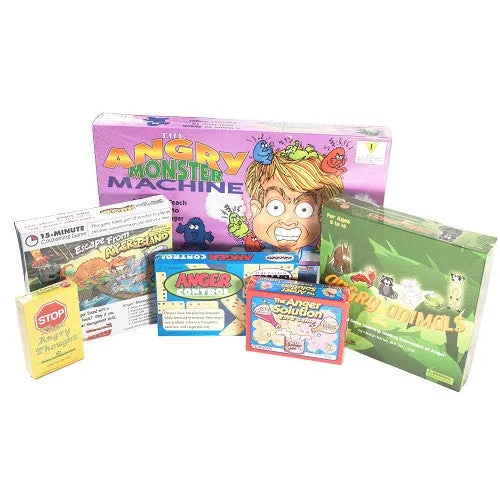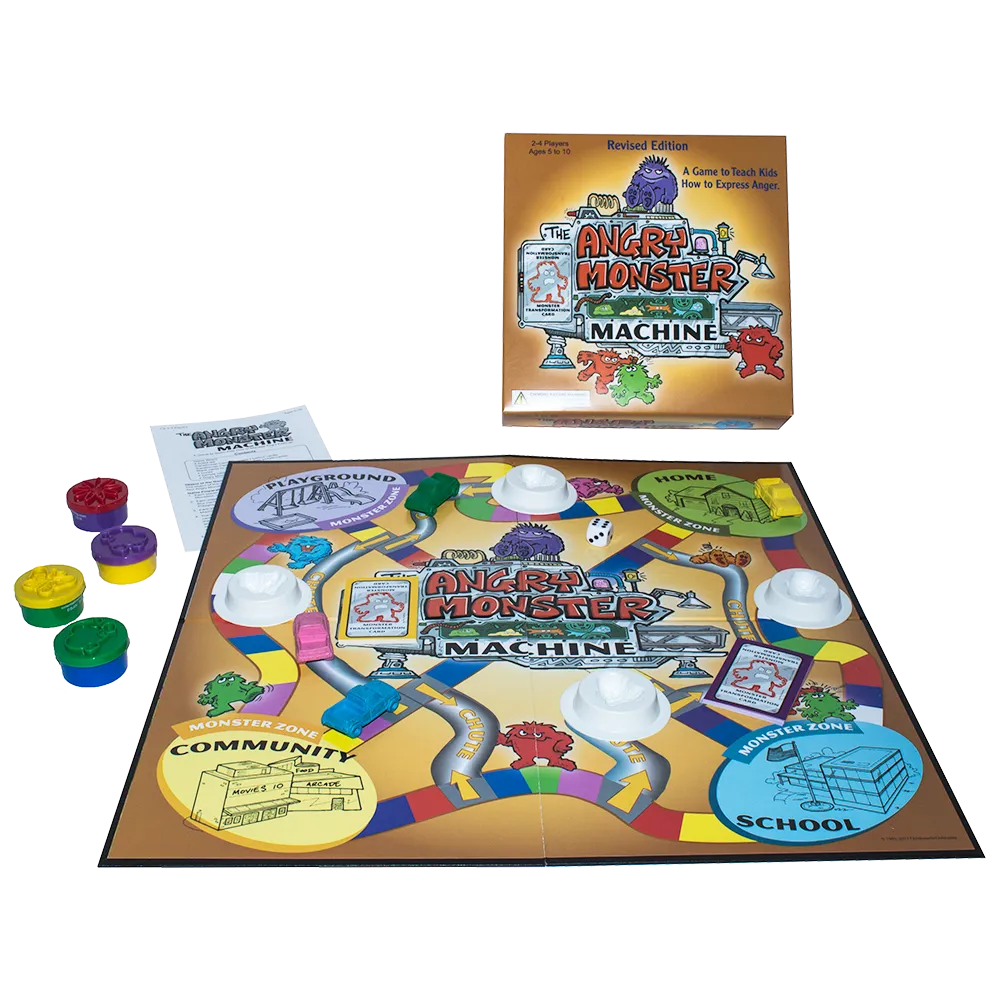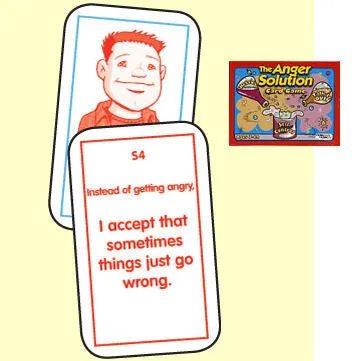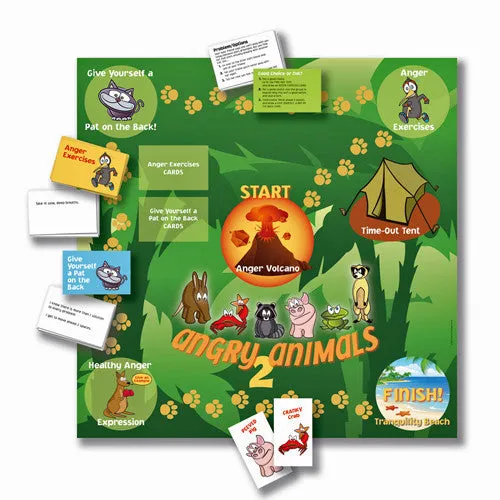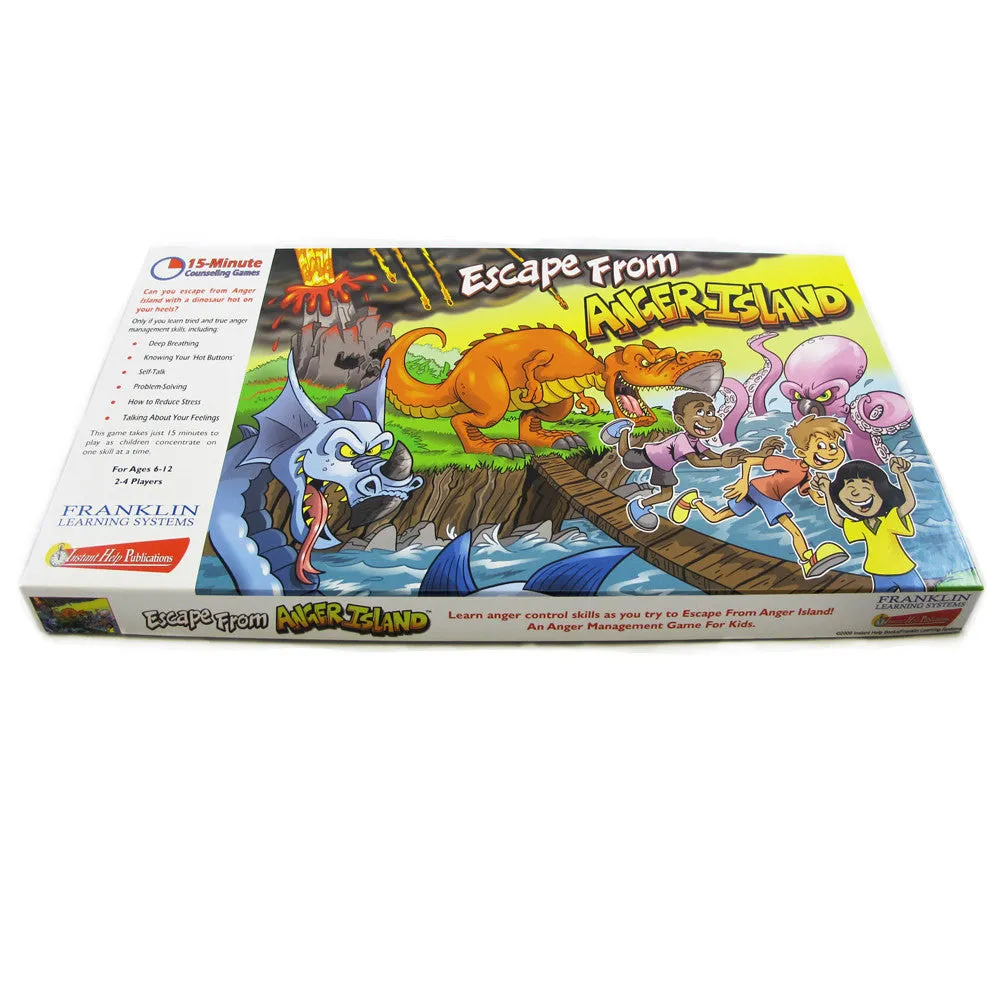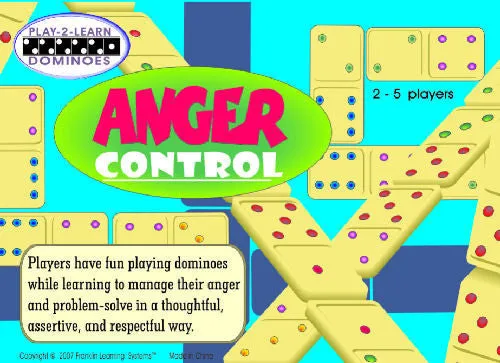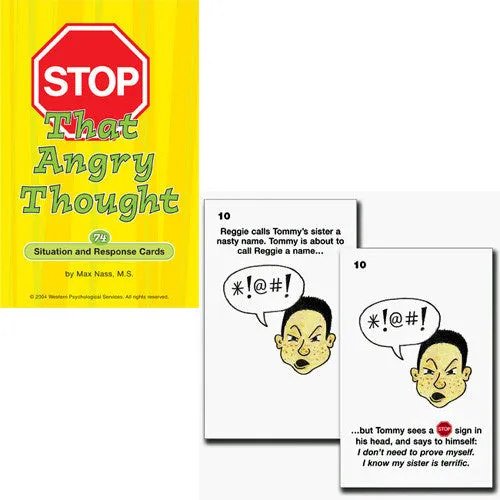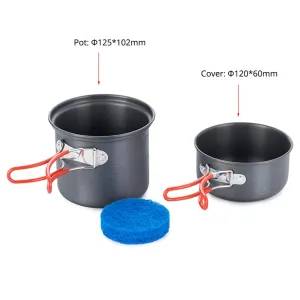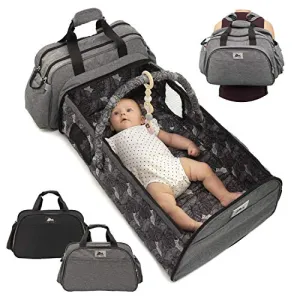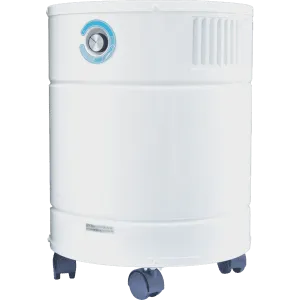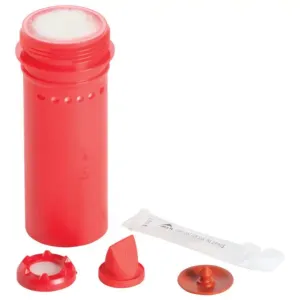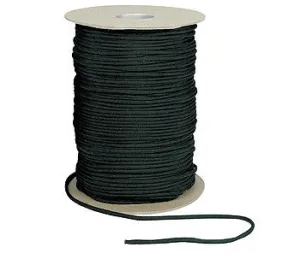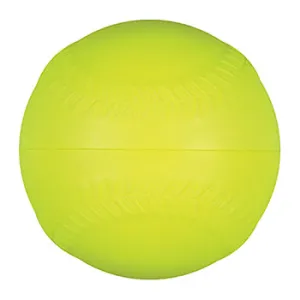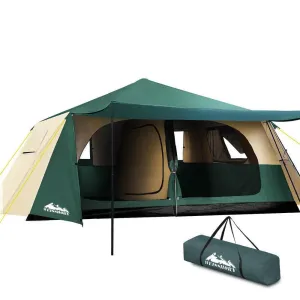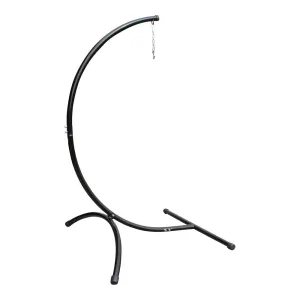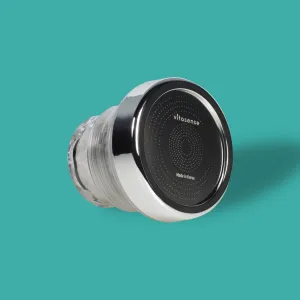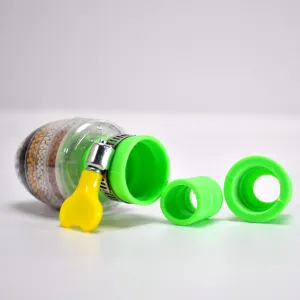: This game helps kids transform their anger. This ingenious game was designed to have a high play value for children who have problems with anger control. Each player uses a truck to pick up Play Doh (R) monsters and cart the monsters back to the transforming machines, here he must say something that makes him angry. He then selects adaptive ways to transform the anger into something positive, and must transform the Play Doh (R) monster too! This game is so much fun, it makes kids want to work on this difficult problem.
: This game was designed to teach children constructive and effective ways to resolve their anger. The cards allow them the opportunity to choose alternatives that can turn anger-inciting situations into more positive encounters. Through repetitive game play, they will learn how to use the new solutions in real life to avoid negative reactions. The object of the game is for players to resolve as many anger-inciting situations as they can within a 20 to 30 minute period. Players get chips for resolving anger situations, and the player with the most chips wins the game. The game is designed to be played in counseling sessions, the classroom, or even the home.
: Angry Aardvark, Cranky Crab, Furious Frog, Mad Meerkat, Peeved Pig, and Raging Racoon teach children how to respond to anger in healthy ways. As they move from the Anger Volcano to Tranquility Beach, with occasional visits to the Time-Out Tent. Participants answer game card questions about behavior, responsibility, sibling rivalry, conflict, and relationships. Along the way, they learn that anger is a natural feeling, neither good nor bad. Its the way one expresses anger that matters. This game encourages youngsters to think about what makes them angry, explore their options in responding to anger, and communicate effectively with peers and adults. Especially useful with younger children, the game can be played by 2 to 6 players or teams, with a teacher, counselor, or therapist.
: Here's a deck of cards that teaches children how to manage their anger. Using two internal dialog techniques. Thought Stopping and Self-Talk kids can stop anger in its tracks. By simply playing cards, they learn to envision a stop sign whenever their anger is triggered and to replace their angry thoughts with more positive responses. The deck includes 37 pairs of cards, and each pair includes a situation card and a corresponding response card. As youngsters react to hypothetical situations that might normally trigger anger, they see a big red stop sign on each response card; a cue to stop the angry thought and come up with a better alternative.
: It is difficult to teach children anger management skills, but it can be done with patience and practice. Escape form Anger Island is designed with the busy counselor in mind, and it can be played in just 15 minutes. There are six skills in total, and one skill is the focus of each 15 minute session. Kids can play multiple times to learn all six skills. Players start on Anger Island. As they move around the board, their goal is to avoid the ferocious dinosaur that is chasing them and escape to the island represented by the skill they are learning. There are six islands, each representing one of the anger control skills.
: Kids love to play dominoes, and Play-2-Learn Dominoes is a new line of therapeutic/counseling games that puts the fun of playing dominoes to work helping kids learn important skills. These games are for elementary school students. 2 5 players. In this new game, players have fun playing dominoes while learning to manage their anger and problem-solve in a thoughtful, assertive, and respectful way. The My Anger Stories cards give players a chance to share the kinds of things that make them angry and demonstrate how to successfully deal with such situations and the resulting anger.
For more information or to purchase items separately click on the title of the game.




